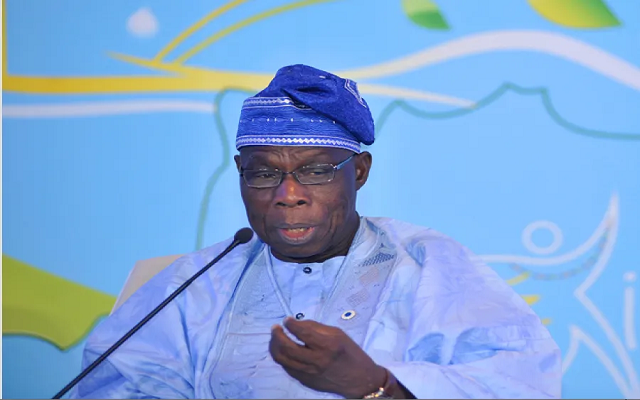Former President Olusegun Obasanjo has said that Africa has the highest youth unemployment rate in the world, urging African nations to ramp up efforts in reducing unemployment levels.
He said this on Tuesday while presenting the 2020 Africa Progress Group (APG) Report, noting that the high fertility rate in Africa was tied to socio-cultural positions on “family planning” in various African communities.
Obasanjo, who chairs the group, said that taking steps to curb Africa’s growing population would need to be tackled through a “socio-cultural” context while taking cognizance of the need to create “safety nets” that would cushion the expanding population.
He said, “For the avoidance of doubt, APG is not queuing behind the proposition for policies such as one child or two per family as we have in some regions of the world. Our position is rested on the belief that population, large or small, can be harnessed as asset rather than a burden.
“Besides, the variability in socio-cultural positions on family planning by different African communities should be respected but properly managed. Africa’s growing population if well managed will yield huge dividends for national and regional development.”
READ ALSO: Insecurity: Buhari To Meet With Security Chiefs On Thursday
“In the report, we have provided over 150 strategic options for African countries in all sectors in managing their populations ranging from providing quality education for all, through investment in food and nutrition security, health security, environmental security, sustainable housing for all, to entrepreneurship and employment security.
“Youth unemployment rate in Africa is one of the highest in the world. African countries must urgently commit to lowering this rate through a combination of efforts including functional education, entrepreneurial training, and provision of job opportunities and the enabling environment for investment and growth of small and medium-scale enterprises.
“The sensitive matter of population control in Africa should be approached in a socio-culturally contextual manner while recognising that uncontrolled population without appropriate safety nets for making the growing population live healthy and productive lives are inimical to national development. African governments should apply global best practices as it suits their socio-cultural sensitivities.”
On the importance of education to the development of a country’s economy, Obasanjo said that education remains key in “unlocking human and material resources of a nation.”
“It can be likened to the hub around which other components of development revolve, like spokes on a wheel. An African country with a huge, educated population (with low illiteracy rate) has a higher chance of making its population an asset for development than one that is populated with persons with high proportion of illiterates,” he added.













